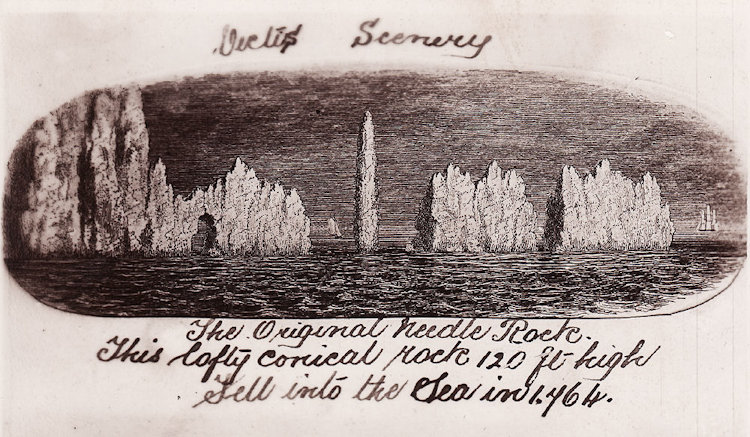
[Dec 1735]
Wednesday 10, We sailed from Cowes, and in the afternoon past the Needles. Here the ragged rocks, with the waves dashing and foaming at the foot of them, and the white side of the island rising to such a height, perpendicular from the beach, gave a strong idea of Him that spanneth the heavens, and holdeth the waters in the hollow of his hand! Today I spoke closely on the head of religion, to one I had talked with once or twice before. Afterwards she said, with many tears, "My mother died when I was but ten years old. Some of her last words were, 'Child, fear God, and though you lose me you shall never want a friend.' I have now found a friend when I most wanted, and least expected one."
Wednesday 10, We sailed from Cowes, and in the afternoon past the Needles. Here the ragged rocks, with the waves dashing and foaming at the foot of them, and the white side of the island rising to such a height, perpendicular from the beach, gave a strong idea of Him that spanneth the heavens, and holdeth the waters in the hollow of his hand! Today I spoke closely on the head of religion, to one I had talked with once or twice before. Afterwards she said, with many tears, "My mother died when I was but ten years old. Some of her last words were, 'Child, fear God, and though you lose me you shall never want a friend.' I have now found a friend when I most wanted, and least expected one."
From this day to the 14th, being in the Bay of Biscay, the sea was very rough. Mr Delamotte and many others were more sick than ever: Mr Ingham a little; I not at all. But the 14th being a calm day, most of the sick were cured at once.
Thurs. 18, One who was big with child, in a high fever, and almost wasted away with a violent cough, desired to receive the Holy Communion before she died. At the hour of her receiving, she began to recover, and in a few days was entirely out of danger.
Sunday 21, We had fifteen communicants, which was our usual number on Sundays; on Christmas Day we had nineteen; but on New-year's-Day, fifteen only.






